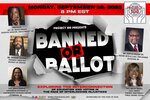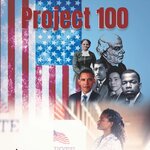

As the nation marks the 60th anniversary of the pivotal March on Washington, a timely reflection on the intricate relationship between voting rights and historical memory becomes imperative. The legacy of Martin Luther King Jr., renowned for his pursuit of equality, deeply resonates as we grapple with the ongoing struggle for equitable access to the ballot box in the United States. Celebrating the memory of this iconic leader is not enough; true homage lies in tangible legislative changes that ensure the preservation of democratic values.
The history of voting rights in the United States reveals a complex evolution over two centuries. Suffrage has been a contentious issue marked by exclusion and incremental progress since the nation's inception. Even today, the echoes of past inequities reverberate through matters of accessibility and fairness in voting. Despite strides in recognizing the right to vote for most citizens, restoring voting rights to formerly incarcerated individuals without punitive measures remains a pressing concern.
Moreover, the class disparities in the voting process cannot be ignored. Socioeconomic factors like income and employment influence citizens' voting ability on election day. Election Day planning often burdens certain demographics, as lower-income areas face reduced polling stations, no paid time off to vote, and longer waiting lines. The 2013 Supreme Court decision exacerbated this issue by contributing to the reduction in polling places, disproportionately affecting marginalized communities.Interestingly, the unrelated issue of book bans profoundly connects with voter suppression. The act of suppressing "freedom knowledge," while distinct from overt attempts at voter restriction, shares a common goal: to weaken democracy by silencing voices and erasing vital histories. By disregarding the interwoven narratives of "Black history" and "American history," such actions detach the present from the painful past, undermining the very essence of democracy.
The 2020 election vividly demonstrated the lengths some politicians would go to disenfranchise Black, Brown, and poor voters. The indelible images of long lines testify to citizens’ determination to participate in their democracy despite systemic barriers. Just as voter suppression weakens the democratic fabric, censoring history perpetuates divisions and threatens the very foundation of our society.
A comprehensive understanding of history unveils the intricate connections between voter suppression and the erasure of marginalized voices. From the days of Reconstruction to contemporary struggles, the recurring theme is one of violence, rule manipulation, and the undermining of democratic values. Voting is a fundamental right and a vehicle of memory and change.
As we honor Martin Luther King Jr.'s legacy and the 60th anniversary of the March on Washington, the urgency of bridging the gap between celebration and legislative action becomes evident. To preserve our democracy, we must recognize the parallels between the fight for voting rights and safeguarding historical narratives. Only by weaving these threads together can we hope to forge a future that respects the struggles of the past and secures the promise of a just and equitable society.
Comments
No comments on this item Please log in to comment by clicking here